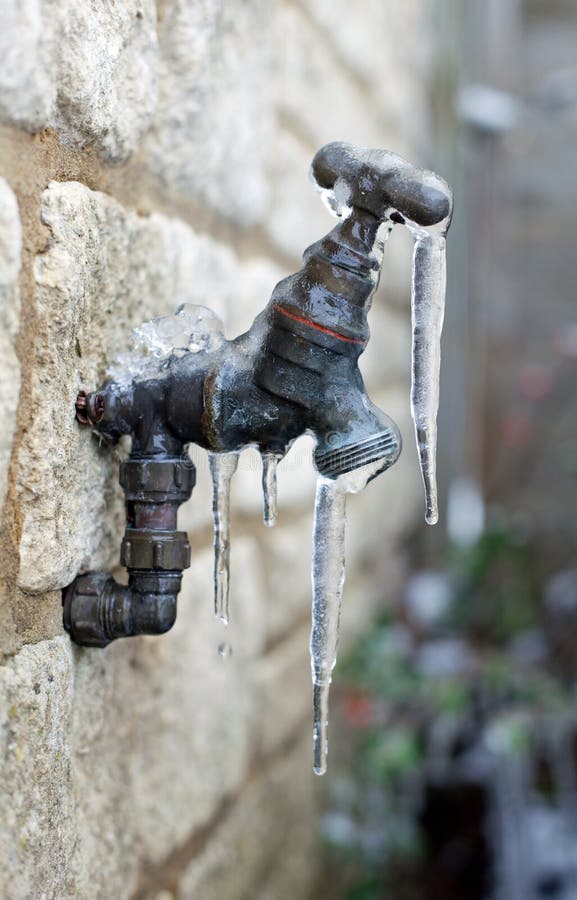The content down the page involving Winter Plumbing Precautions: Preventing Frozen Pipes is especially interesting. Don't miss out on it.

Cold weather can wreak havoc on your pipes, particularly by freezing pipelines. Below's how to avoid it from happening and what to do if it does.
Intro
As temperatures decrease, the danger of frozen pipelines increases, potentially causing pricey repairs and water damage. Understanding exactly how to prevent frozen pipelines is critical for homeowners in cold environments.
Understanding Icy Pipelines
What causes pipes to ice up?
Pipelines ice up when revealed to temperatures listed below 32 ° F (0 ° C) for prolonged periods. As water inside the pipes freezes, it broadens, putting pressure on the pipeline wall surfaces and possibly causing them to burst.
Risks and damages
Icy pipelines can bring about water system disruptions, property damage, and pricey fixings. Burst pipes can flood homes and trigger extensive architectural damages.
Signs of Frozen Water Lines
Identifying frozen pipelines early can avoid them from rupturing.
Just how to determine icy pipelines
Look for decreased water flow from faucets, unusual odors or noises from pipelines, and visible frost on subjected pipelines.
Avoidance Tips
Insulating susceptible pipes
Cover pipelines in insulation sleeves or utilize warmth tape to safeguard them from freezing temperature levels. Focus on pipelines in unheated or outside areas of the home.
Heating methods
Keep interior areas effectively heated up, especially areas with plumbing. Open up cabinet doors to permit cozy air to flow around pipes under sinks.
Shielding Exterior Plumbing
Yard hoses and outdoor faucets
Disconnect and drain garden pipes before wintertime. Set up frost-proof spigots or cover outdoor taps with shielded caps.
What to Do If Your Pipes Freeze
Immediate activities to take
If you think frozen pipes, keep faucets open up to eliminate pressure as the ice melts. Make use of a hairdryer or towels soaked in hot water to thaw pipes gradually.
Long-Term Solutions
Architectural changes
Think about rerouting pipelines away from outside wall surfaces or unheated areas. Add added insulation to attics, basements, and crawl spaces.
Updating insulation
Invest in top notch insulation for pipes, attics, and wall surfaces. Appropriate insulation aids maintain consistent temperature levels and reduces the threat of frozen pipes.
Conclusion
Stopping frozen pipes requires positive steps and quick responses. By understanding the reasons, indications, and safety nets, house owners can safeguard their plumbing during cold weather.
Helpful Tips to Prevent Frozen Pipes this Winter
UNDERSTANDING THE BASICS: WHY PIPES FREEZE AND WHY IT’S A PROBLEM
Water freezing inside pipes is common during the winter months, but understanding why pipes freeze, and the potential problems it can cause is crucial in preventing such incidents. This section will delve into the basics of why pipes freeze and the associated problems that may arise.
THE SCIENCE BEHIND FROZEN PIPES
When water reaches freezing temperatures, it undergoes a physical transformation and solidifies into ice. This expansion of water as it freezes is the primary reason pipes can burst. As the water inside the pipe freezes, it expands, creating immense pressure on the walls. If the pressure becomes too great, the pipe can crack or rupture, leading to leaks and water damage.
FACTORS THAT CONTRIBUTE TO PIPE FREEZING
Low Temperatures: Extremely cold weather, especially below freezing, increases the risk of pipes freezing. Uninsulated or Poorly Insulated Pipes: Pipes located in unheated areas, such as basements, crawl spaces, or attics, are more prone to freezing. Insufficient insulation or lack of insulation altogether exacerbates the problem. Exterior Wall Exposure: Pipes running along exterior walls are susceptible to freezing as they encounter colder temperatures outside. Lack of Heating or Temperature Regulation: Inadequate heating or inconsistent temperature control in your home can contribute to frozen pipes. PROBLEMS CAUSED BY FROZEN PIPES
- Pipe Bursting: As mentioned earlier, the expansion of water as it freezes can cause pipes to burst, resulting in significant water damage.
- Water Damage: When pipes burst, it can lead to flooding and water damage to your property, including walls, ceilings, flooring, and personal belongings.
- Structural Damage: Prolonged exposure to water from burst pipes can compromise the structural integrity of your home, leading to costly repairs.
- Mold and Mildew Growth: Excess moisture from water damage can create a favorable environment for mold and mildew growth, posing health risks to occupants.
- Disrupted Water Supply: Frozen pipes can also result in a complete or partial loss of water supply until the issue is resolved.
WHY CERTAIN PIPES ARE MORE PRONE TO FREEZING
- Location: Pipes located in unheated or poorly insulated areas, such as basements, crawl spaces, attics, or exterior walls, are at higher risk of freezing.
- Exterior Pipes: Outdoor pipes, such as those used for irrigation or exposed plumbing, are particularly vulnerable to freezing as they are directly exposed to the elements.
- Supply Lines: Pipes that carry water from the main water supply into your home, including the main water line, are critical to protect as freezing in these lines can affect your entire plumbing system.
- Underground Pipes: Pipes buried underground, such as those connected to sprinkler systems or outdoor faucets, can be susceptible to freezing if not properly insulated.
https://busybusy.com/blog/helpful-tips-to-prevent-frozen-pipes-this-winter/

Do you appreciate reading about 6 Ways to Prevent Frozen Pipes? Place a short review down below. We will be pleased to find out your thoughts about this article. We are looking forward that you visit us again soon. If you appreciated our page kindly make sure you remember to share it. Many thanks for taking the time to read it.
Visit Page